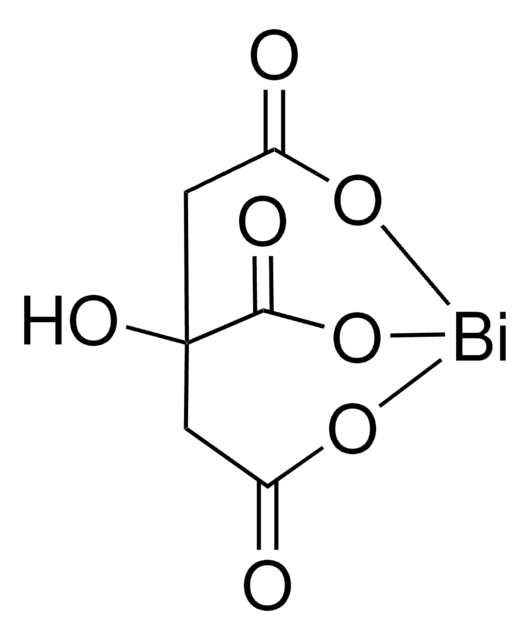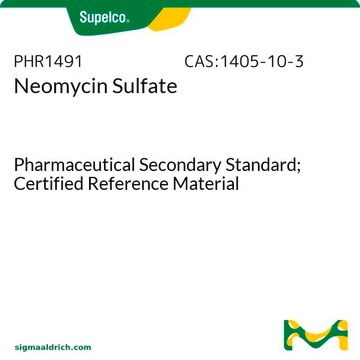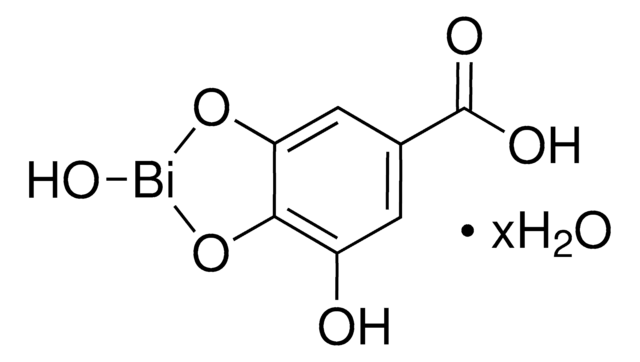480789
Bismuth(III) subsalicylate
99.9% trace metals basis
Synonyme(s) :
Bismuth oxysalicylate, Bismuth subsalicylate, Bismuth(III) salicylate basic
About This Item
Produits recommandés
Niveau de qualité
Pureté
99.9% trace metals basis
Pertinence de la réaction
core: bismuth
reagent type: catalyst
Pf
>350 °C (lit.)
Chaîne SMILES
O[Bi]1OC(=O)c2ccccc2O1
InChI
1S/C7H6O3.Bi.H2O/c8-6-4-2-1-3-5(6)7(9)10;;/h1-4,8H,(H,9,10);;1H2/q;+3;/p-3
Clé InChI
ZREIPSZUJIFJNP-UHFFFAOYSA-K
Description générale
Application
- Use of ferric chloride to identify salicylate-containing poisons.: This study explores the use of ferric chloride to detect salicylate compounds, including Bismuth subsalicylate, highlighting its significance in toxicological screenings and emergency treatments. (Hoffman RJ et al., 2002).
- Effect of pepper and bismuth subsalicylate on gastric pain and surface hydrophobicity in the rat.: Investigates the effects of Bismuth subsalicylate on gastric pain and stomach lining properties, providing insights into its gastroprotective mechanisms. (Lichtenberger LM et al., 1998).
- The coccoid forms of Helicobacter pylori. Criteria for their viability.: Examines the effectiveness of Bismuth subsalicylate in targeting different morphological forms of Helicobacter pylori, contributing to its role in eradication therapies. (Bode G et al., 1993).
- Bismuth therapy in gastrointestinal diseases.: A comprehensive review of the therapeutic applications of Bismuth subsalicylate in treating various gastrointestinal disorders, underscoring its pharmacological benefits and safety profile. (Gorbach SL, 1990).
Code de la classe de stockage
11 - Combustible Solids
Classe de danger pour l'eau (WGK)
WGK 3
Point d'éclair (°F)
Not applicable
Point d'éclair (°C)
Not applicable
Équipement de protection individuelle
Eyeshields, Gloves, type N95 (US)
Certificats d'analyse (COA)
Recherchez un Certificats d'analyse (COA) en saisissant le numéro de lot du produit. Les numéros de lot figurent sur l'étiquette du produit après les mots "Lot" ou "Batch".
Déjà en possession de ce produit ?
Retrouvez la documentation relative aux produits que vous avez récemment achetés dans la Bibliothèque de documents.
Les clients ont également consulté
Notre équipe de scientifiques dispose d'une expérience dans tous les secteurs de la recherche, notamment en sciences de la vie, science des matériaux, synthèse chimique, chromatographie, analyse et dans de nombreux autres domaines..
Contacter notre Service technique










